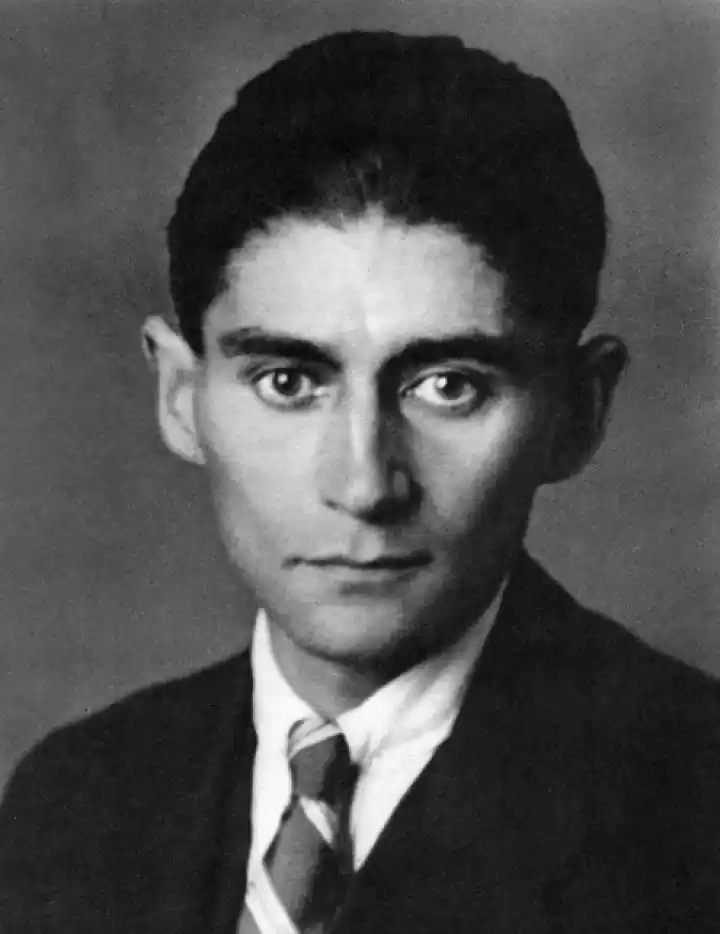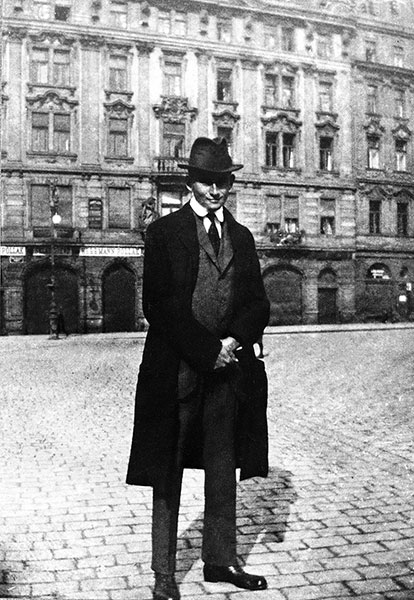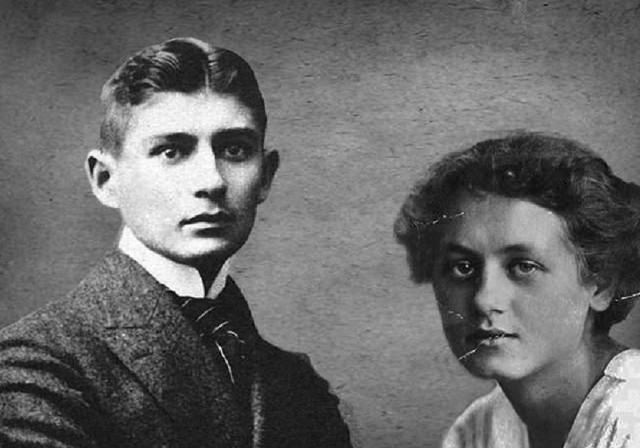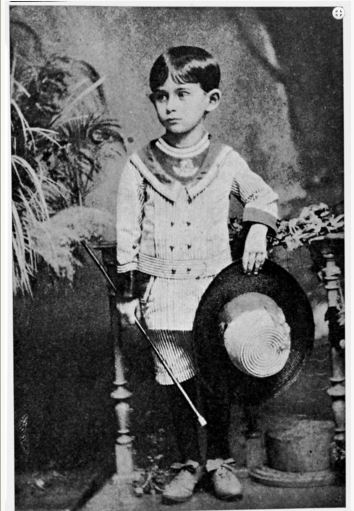The Labyrinth of Existence: A Journey Through Kafka's World
In the heart of Prague, beneath the shadow of the towering spires and winding streets, lies a labyrinthine realm of existential turmoil—a world crafted not of stone and mortar, but of the intricate machinations of one man's mind. This man, Franz Kafka, remains one of the most enigmatic figures in literary history, his works a testament to the human condition and the absurdity of existence. Kafka's writing transcends mere storytelling; it delves into the depths of the psyche, unraveling the complexities of human consciousness with unparalleled precision. Through his lens, we are confronted with the absurdity of bureaucracy in "The Trial," the alienation of modernity in "The Metamorphosis," and the existential dread of existence itself in "The Castle." Each work serves as a mirror, reflecting back to us the fragmented nature of reality and the futility of our search for meaning.
Kafka's writing transcends mere storytelling; it delves into the depths of the psyche, unraveling the complexities of human consciousness with unparalleled precision. Through his lens, we are confronted with the absurdity of bureaucracy in "The Trial," the alienation of modernity in "The Metamorphosis," and the existential dread of existence itself in "The Castle." Each work serves as a mirror, reflecting back to us the fragmented nature of reality and the futility of our search for meaning. In "The Trial," we follow the bewildering journey of Josef K., a man arrested and prosecuted by an elusive and omnipotent court for a crime never revealed. As he navigates the labyrinthine corridors of the legal system, he encounters a myriad of absurd characters and situations, each more surreal than the last. Through Josef K.'s futile attempts to assert his innocence, Kafka lays bare the arbitrary and oppressive nature of authority, leaving us to question the very foundations of justice and truth.
In "The Trial," we follow the bewildering journey of Josef K., a man arrested and prosecuted by an elusive and omnipotent court for a crime never revealed. As he navigates the labyrinthine corridors of the legal system, he encounters a myriad of absurd characters and situations, each more surreal than the last. Through Josef K.'s futile attempts to assert his innocence, Kafka lays bare the arbitrary and oppressive nature of authority, leaving us to question the very foundations of justice and truth.
Similarly, in "The Metamorphosis," we are introduced to Gregor Samsa, a traveling salesman who wakes one morning to find himself transformed into a giant insect. Trapped within the confines of his own body, Gregor becomes a prisoner in his own home, alienated from his family and society at large. Through Gregor's metamorphosis, Kafka explores themes of identity, isolation, and the absurdity of the human condition. Gregor's struggle to reconcile his humanity with his newfound form serves as a haunting metaphor for the existential angst that permeates Kafka's work.
And then there is "The Castle," perhaps Kafka's most enigmatic and haunting work of all. In this unfinished masterpiece, we follow the protagonist known only as K. as he arrives in a nameless village dominated by a mysterious castle. Determined to gain access to the castle and uncover the truth of his existence, K. becomes ensnared in a web of bureaucracy and confusion, his quest ultimately leading to his own demise. Through K.'s futile pursuit of the unattainable, Kafka paints a bleak portrait of the human condition—a world devoid of meaning, purpose, or redemption.
But amidst the despair and absurdity that pervades Kafka's work, there exists a glimmer of hope—a faint whisper of possibility that suggests that, perhaps, there is meaning to be found in the absurdity of existence itself. It is this paradoxical tension between despair and hope, between the absurd and the sublime, that defines Kafka's legacy and continues to captivate readers to this day.
As we wander through the labyrinth of Kafka's world, we are forced to confront our own existential anxieties and uncertainties. We are reminded of the fleeting nature of life, the inevitability of death, and the relentless march of time. And yet, amidst the chaos and confusion, there remains a profound beauty—a beauty born not of certainty or clarity, but of the very uncertainty and ambiguity that defines our existence.
And yet, it is precisely this fragility that gives rise to the possibility of transcendence—the possibility of finding meaning and purpose in a world devoid of both. As we emerge from the labyrinth of Kafka's world, we are left with a profound sense of awe and wonder—a sense of wonder that reminds us of the boundless potential of the human spirit, even in the face of overwhelming darkness. In Kafka's universe, the boundaries between reality and unreality blur, leaving the reader in a perpetual state of disorientation. Characters often find themselves trapped in nightmarish scenarios, grappling with forces beyond their comprehension. Through Kafka's lens, the mundane becomes surreal, and the surreal becomes mundane, creating a sense of unease that lingers long after the final page is turned.
In Kafka's universe, the boundaries between reality and unreality blur, leaving the reader in a perpetual state of disorientation. Characters often find themselves trapped in nightmarish scenarios, grappling with forces beyond their comprehension. Through Kafka's lens, the mundane becomes surreal, and the surreal becomes mundane, creating a sense of unease that lingers long after the final page is turned.
Yet, despite the inherent pessimism that permeates Kafka's work, there exists a profound sense of empathy for the human condition. Kafka's characters, though often absurd and grotesque, are imbued with a deep sense of humanity—a humanity that shines through even in the darkest moments of despair. Whether it's Josef K. facing the insurmountable odds of the legal system, Gregor Samsa struggling to maintain his humanity in the face of his transformation, or K. confronting the existential void at the heart of the castle, Kafka's characters resonate with a universal truth—the struggle to find meaning in a world devoid of meaning.
It is this universal truth that has ensured Kafka's enduring legacy, transcending time and space to speak to readers across generations and cultures. His works continue to inspire countless interpretations and adaptations, each offering new insights into the enigmatic mind of one of literature's greatest masters.
But perhaps Kafka's greatest gift to humanity lies not in his answers, but in his questions. Through his writing, he challenges us to confront the fundamental absurdity of existence and to grapple with the uncertainty that defines the human condition. In a world increasingly characterized by chaos and confusion, Kafka's work serves as a beacon of insight—a reminder of the importance of embracing life's uncertainties and finding meaning amidst the madness.
As we navigate the labyrinth of Kafka's world, we are forced to confront our own fears, doubts, and insecurities. We are reminded that life is not a linear journey, but a winding path filled with unexpected twists and turns. And yet, amidst the chaos and confusion, there exists the possibility of redemption—the possibility of finding meaning and purpose in the most unlikely of places. In the end, Kafka's legacy endures not because he provides us with easy answers or comforting truths, but because he challenges us to confront the inherent absurdity of existence and to find meaning in the midst of uncertainty. His works continue to captivate and confound readers, inviting us to peer into the depths of the human soul and to confront the existential questions that lie at the heart of our existence.
In the end, Kafka's legacy endures not because he provides us with easy answers or comforting truths, but because he challenges us to confront the inherent absurdity of existence and to find meaning in the midst of uncertainty. His works continue to captivate and confound readers, inviting us to peer into the depths of the human soul and to confront the existential questions that lie at the heart of our existence.
As we close the pages of Kafka's books, we are left with a profound sense of wonder—a wonder that transcends language and logic, leading us on a journey of self-discovery and enlightenment. In Kafka's world, the impossible becomes possible, the absurd becomes real, and the boundaries between fiction and reality blur into oblivion. And yet, amidst the chaos and confusion, there exists a glimmer of hope—a hope that reminds us of the resilience of the human spirit and the boundless possibilities that lie within each and every one of us.
















































